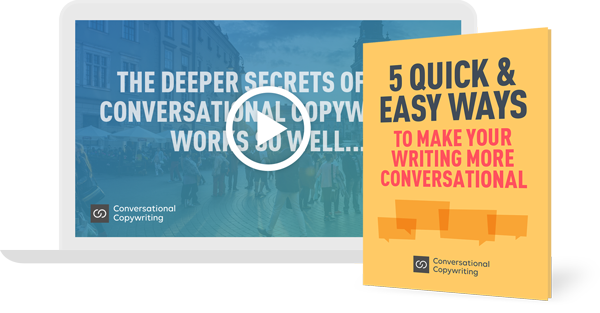
Truth be told, sometimes being a great communicator isn’t about writing at all.
You can be in the presence of a great communicator while listening to an amazing TED talk, or in a classroom.
The same could happen while in conversation with a colleague or friend over coffee or a drink. It’s not just professional writers and speakers who have this gift.
What does it take to be a great communicator?
Four qualities jump to mind.
First – Be a good listener and ask plenty of questions.
To be a great communicator you need to connect with your audience at a deep and emotional level.
And you can’t establish a deep connection with someone without first knowing what interests them. This means you have to listen. You have to ask questions.
Then, once you truly KNOW your audience, you’re in a position to communicate with them.
Being a good communicator isn’t about speaking or writing AT people, it’s about connecting WITH them.
Second – Be empathetic and earn your listeners’ trust.
This is a close cousin to being a good listener. In fact, it’s hard to truly listen to someone if you’re not empathetic. You need to care about them, and understand them. Even if their life experiences and beliefs are very different from your own.
People can tell if you’re the real deal or not. They’ll know if you care about them.
And once they know you’re sincere, they’ll feel they can trust you.
And once they trust you, they’ll be more open to the messages you want to share.
Caring about and earning the trust of your audience are essential parts of being a good communicator.
Third – Be authentically enthusiastic.
Enthusiasm is contagious.
It’s also incredibly powerful. We are drawn to people who share a genuine enthusiasm for a particular subject or topic.
This is the power we see on stage when someone is clearly excited by the TED talk they are giving.
We lean forward. We smile. We want to reach out and share some of those positive vibrations coming from the speaker.
It’s the same when you write. Your readers can sense whether or not you’re excited about what you’re sharing.
But keep in mind… your enthusiasm needs to be real and authentic.
Sure, you can fool some people some of the time by acting the part of someone who is sounding enthusiastic.
But over time, people will filter out the players, and focus just on the people who show genuine enthusiasm.
Fourth – Use clear and concise language.
Something else you’ll notice about great communicators is that they use clear and simple language.
No fancy words or long, compound sentences. No brain-bruising concepts that would strain the cognitive power of a recently minted PhD student.
Great communicators keep it simple.
They share simple, but jaw-dropping insights and ideas.
They use easy-to-understand language that a 10-year-old could understand.
This is what it means to be a great communicator.
As a copywriters and content writers, this is what we should aspire to.
Whether we’re writing copy or content, we should learn from the strengths of all great communicators, regardless of whether they’re writers.
If that sounds like a tough task, that’s why I created my course on Conversational Copywriting.
It’s all about learning to become a better copywriter by improving your skills as a communicator.
